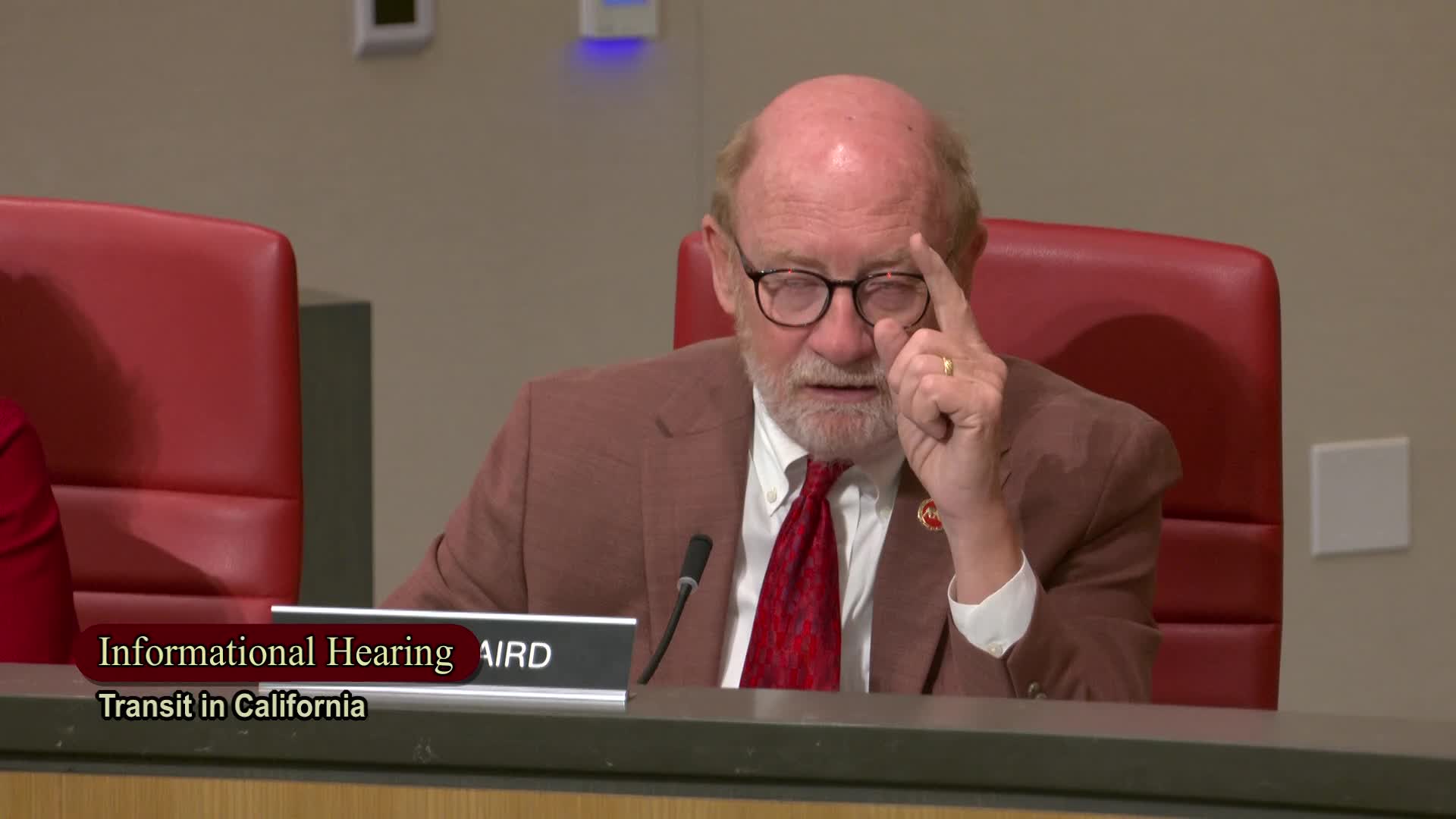Senate subcommittee: SB125 bought time but California transit still needs more sustained support
Get AI-powered insights, summaries, and transcripts
Subscribe
Summary
A Senate Budget subcommittee heard that $5.1 billion in state relief (SB125) gave agencies breathing room after the pandemic, but uneven ridership recovery, falling fare revenues and expiring federal relief have left many operators facing near‑term fiscal cliffs and asking the state for longer‑term funding and reforms.
At a Senate Budget and Fiscal Review subcommittee informational hearing, senators and transit experts said state relief enacted in 2023 helped avert immediate systemwide service collapses but did not remove longer‑term funding pressures.
“Public transportation is not optional. It's essential,” Sen. Scott Wiener, chair of the subcommittee, told witnesses at the start of the hearing, framing the panel's focus on operations, capital needs and accountability. Legislative, academic and operator witnesses described how pandemic ridership loss and lingering changes in trip patterns have reduced fare revenue and left some agencies dependent on one‑time federal and state support.
Why it matters: transit operations fund service on which many Californians — particularly low‑income households, people of color and people with limited access to cars — rely for work, health care and other essential trips. Witnesses said underinvesting in transit also undermines state climate and housing goals by making driving comparatively cheaper.
Key facts presented at the hearing included: administrators of SB125 described the package as roughly $5.1 billion in multiyear support — a combination of prior capital allocations (about $4.0 billion previously identified for capital) that agencies were allowed to flex to operations and approximately $1.1 billion in additional funding — administered through regional allocations and CalSTA oversight. The Legislative Analyst's Office told senators statewide transit ridership in 2023 remained below 2019 levels (the LAO cited a 29% decline statewide between 2019 and 2023), with agency‑by‑agency variation.
Frank Jimenez of the Legislative Analyst's Office explained that federal pandemic relief (roughly $9.8 billion delivered to California agencies) and the state's SB125 funds “helped delay the transit fiscal cliff by a few years,” but he and UCLA researcher Brian Taylor said the underlying shifts in how often people take trips — fewer weekday commute trips per person, for example — mean fare revenue is unlikely to return uniformly across systems.
Operators and advocates pressed the committee to consider additional, predictable funding streams. Several local operators described looming gaps tied to expiring pandemic or one‑time state funds, and a series of public commenters from BART, Caltrain and other operators reiterated that excellent service and safety investments require sustained revenue rather than mostly capital grants.
The hearing also highlighted that the Transit Transformation Task Force created under SB125 is charged with recommending reforms and that the task force's report to the Legislature is due Oct. 31, 2025. CalSTA and other witnesses noted agencies must submit short‑term plans to receive SB125 allocations and long‑term financial plans by June 30, 2026.
Looking ahead: senators and witnesses framed SB125 as temporary relief that must be followed by either new state funding, local self‑help measures or structural reforms to give operators predictable operating support. The committee's work will continue through the budget process and follow the Task Force recommendations later this year.
